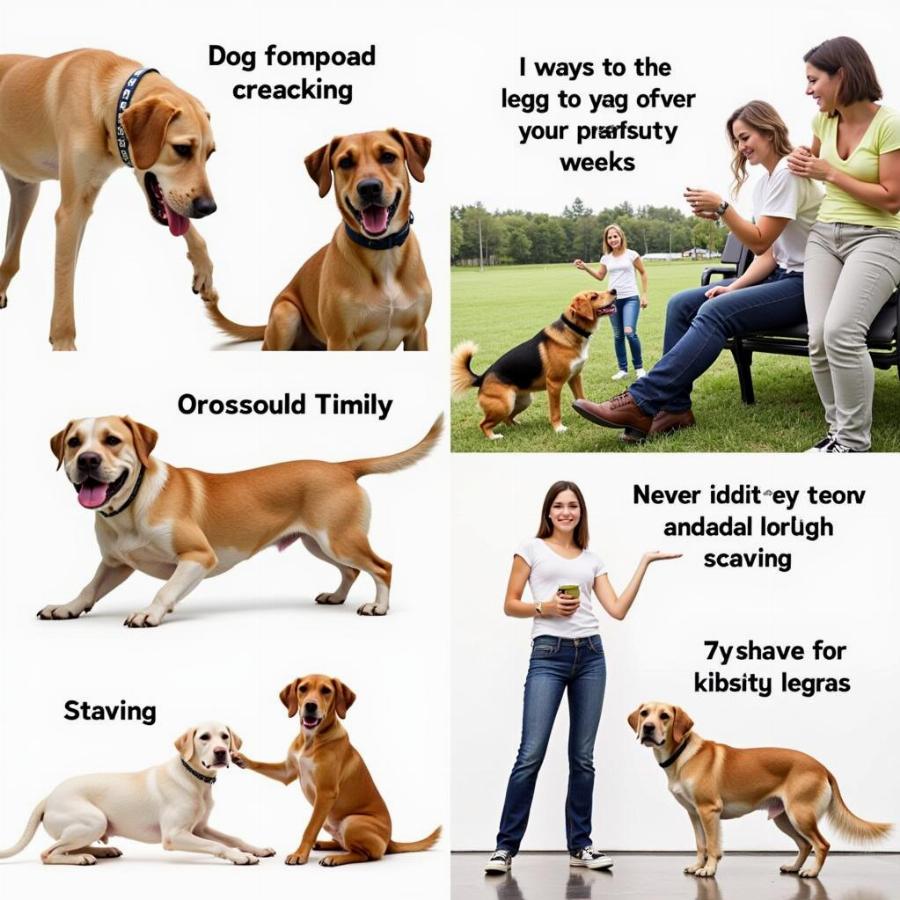The term “mad dog Tannen” likely stems from the iconic antagonist, Biff Tannen, in the “Back to the Future” trilogy, often using the phrase “mad dog” as an insult. While entertaining on screen, applying this label to a real dog breed is misleading and potentially harmful. This article explores why there’s no such thing as a “mad dog” breed, focusing on how temperament is shaped by individual factors rather than breed alone. We’ll delve into responsible dog ownership and the importance of training and socialization for a well-behaved companion.
Debunking the “Mad Dog” Stereotype
The concept of a “mad dog” is often rooted in fear and misunderstanding. While certain breeds might have a predisposition towards certain behaviors, like herding or guarding, it doesn’t mean they are inherently aggressive or “mad.” Just like humans, dogs are individuals with unique personalities. Generalizing based on breed can lead to unfair prejudice and mischaracterize gentle, loving animals. A dog’s behavior is influenced by numerous factors, including genetics, upbringing, training, and environment.
The Importance of Responsible Dog Ownership
Responsible dog ownership plays a crucial role in shaping a dog’s behavior. Providing a loving and stable environment, along with consistent training and socialization, is essential for raising a well-adjusted dog. Early socialization exposes puppies to different people, places, and situations, helping them develop confidence and appropriate social skills. This reduces the likelihood of fear-based aggression or reactivity later in life.
 Responsible Dog Ownership: Training and Socialization
Responsible Dog Ownership: Training and Socialization
Focusing on Training and Socialization
Training is another key aspect of responsible dog ownership. Basic obedience commands, such as “sit,” “stay,” and “come,” provide structure and help build a strong bond between dog and owner. Positive reinforcement methods, using rewards and praise, are generally more effective than punishment-based techniques. Ongoing training and socialization throughout a dog’s life help maintain good behavior and prevent potential problems.
Is There a Breed Prone to Aggression?
While no breed is inherently “mad,” some breeds might be more prone to certain behaviors, including aggression, if not properly trained and socialized. Breeds historically bred for guarding or protection, like German Shepherds or Rottweilers, may be more likely to display protective instincts. However, with proper training and socialization, these breeds can be loving and loyal companions.
What to Do if You Encounter an Aggressive Dog
If you encounter a dog displaying aggressive behavior, it’s important to remain calm and avoid making sudden movements. Do not attempt to approach or touch the dog. Slowly back away while avoiding direct eye contact. If the dog attacks, try to protect yourself by covering your face and neck. Report the incident to the appropriate authorities.
Conclusion
The notion of a “mad dog Tannen” is a misconception. No breed is inherently “mad.” Responsible dog ownership, including proper training and socialization, is crucial for shaping a dog’s behavior and ensuring they become well-adjusted members of society. By understanding the factors that influence canine behavior, we can move beyond harmful stereotypes and appreciate the unique personalities of each individual dog. Remember, a dog’s temperament is a product of nurture, not just nature.
FAQs
- Are certain dog breeds inherently dangerous? No. A dog’s behavior is influenced by multiple factors, not solely by breed.
- How can I prevent my dog from becoming aggressive? Early socialization, consistent training, and a loving environment are key.
- What should I do if a dog attacks me? Protect yourself by covering your face and neck, and report the incident to the authorities.
- Is it fair to label a dog as “mad”? No. This term is misleading and perpetuates negative stereotypes.
- How can I learn more about responsible dog ownership? Consult with a veterinarian, professional dog trainer, or reputable animal welfare organizations.
- Do certain dog breeds require more training than others? Some breeds might require more specialized training based on their natural instincts, but all dogs benefit from basic obedience training.
- Where can I find resources for dog training and socialization? Local dog training clubs, animal shelters, and online resources offer valuable information and support.
Related Resources on Beaut Dogs
- Dog Breed Profiles
- Dog Training Guides
- Dog Socialization Tips
Beaut Dogs is your go-to resource for everything dog-related. We provide reliable, helpful, and in-depth information about the canine world, from breed-specific guides to training and care advice. When you need support, please contact Email: [email protected] to get detailed and accurate answers from Beaut Dogs. Visit https://beautdogs.com today!